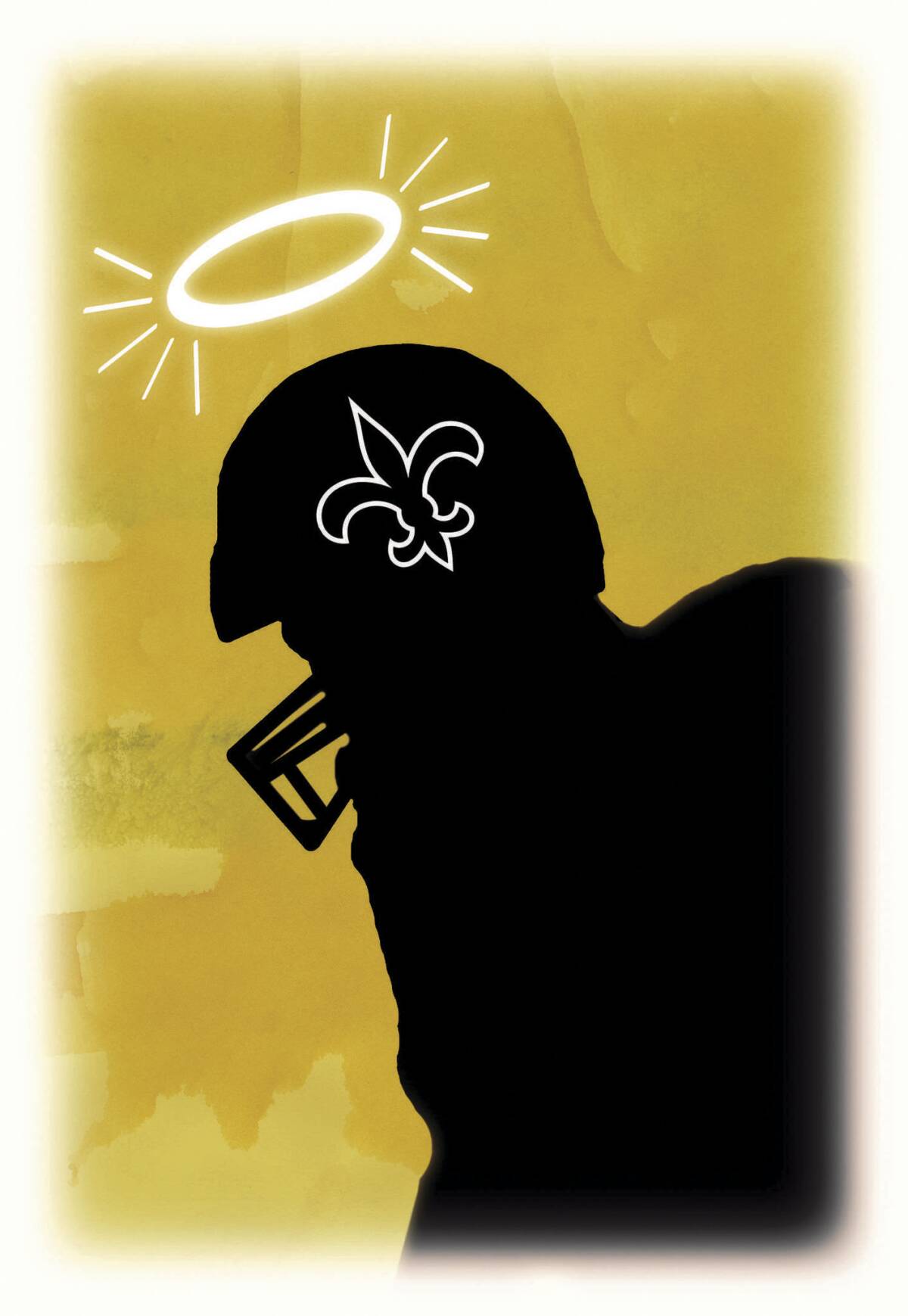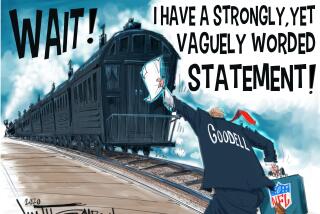Letters: The Saints’ bounty program

Re “The Saints ain’t sinners,” Opinion, July 15
Kevin Hassett’s and Stan Veuger’s defense of the New Orleans Saints’ bounty program is morally bankrupt and statistically absurd. They dismiss critiques of this pay-for-assaults program, citing the fact that their carefully selected measure — the number of opposing players reported as injured in the week after a game against the Saints — did not change.
First, injury reports are self-reports. NFL players will move heaven and Earth to conceal injuries from trainers and coaches. Overwhelmingly, the injuries reported are limited to those that cannot be concealed, either because they were witnessed or because they were visibly disabling.
Second, head and spine injuries are often associated with a delayed onset of their most serious subjective sequelae, a fact these nonphysicians overlook.
Third, this argument is morally fallacious. If you discover a murder-for-hire plot and the assassin missed his shot, you still prosecute the crime.
Jeff Victoroff, MD
Los Angeles
The writer, an associate professor at USC’s Keck School of Medicine, is the director of the NFL Neurological Care Program.
The study is dubious on its face. Comparing injury reports for entire teams ignores the fact that the Saints’ bounty program was directed only at particular players, mostly quarterbacks.
But more damning to Hassett and Veuger is that by limiting their study to actual injury reports, they imply that only the bounties that succeeded should be criticized. By that logic, the penalties should be reserved only for the honest teams that happen to fall on the wrong side of the study’s averages, while the dishonest but incompetent Saints deserve a reward.
This study would not stand up in a courtroom.
Bruce N. Graham
Calabasas
ALSO:
Letters: Spanking and parenting
Letters: It’s still the hermit kingdom
Letters: Pats on the back for Villaraigosa
More to Read
A cure for the common opinion
Get thought-provoking perspectives with our weekly newsletter.
You may occasionally receive promotional content from the Los Angeles Times.










